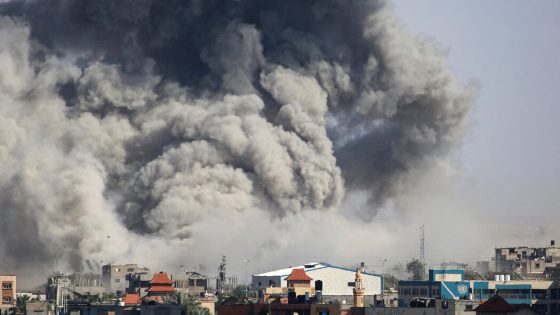The announcement by Hamas on Monday that it had accepted terms of a cease-fire added to the uncertainty that began over the weekend, when officials said that the armed group and Israel had reached an impasse after months of talks.
As if to underscore that the fighting would continue, Hamas militants on Sunday launched rockets from Rafah, their last stronghold in Gaza, killing four Israeli soldiers.
The following morning, Israel ordered people to evacuate from some areas in Rafah, a clear sign the military intended to soon begin a long-anticipated invasion of the crowded city. On Monday night, the Israeli military said it was carrying out “targeted strikes” on what it called “terror targets in eastern Rafah.”
Hours later, Hamas suddenly announced that its leader, Ismail Haniyeh, had accepted a cease-fire proposal based on a plan proffered by Egypt and Qatar, which have been mediating the negotiations with Israel. The terms Hamas had agreed to were not immediately clear, but a senior Israeli official quickly said that the terms were not those that Israel had agreed to.
While Israel and its main ally, the United States, said they were reviewing the proposal Hamas had agreed to, the public statements by the two sides in the war suggest that they remain far apart on key issues needed to reach a truce. Here is a look at those differences.
Hamas wants a permanent cease-fire. Israel wants a temporary truce.
The two sides are stuck on a fundamental question: will this cease-fire be a temporary pause to allow an exchange of hostages for prisoners or a long-term end to the fighting that would leave Hamas in power?
Israel insists on a temporary cease-fire, saying it will keep fighting afterward with the eventual aim of toppling Hamas’s rule in Gaza. Hamas demands a permanent cease-fire and vows to remain in power there.
In November, the two sides agreed to a weeklong truce during which 105 hostages were exchanged for 240 Palestinian prisoners in Israel. But Hamas has conditioned the release of any more hostages on an Israeli commitment to ending the war. (There are about 100 hostages believed to still be alive, and Hamas is also holding the remains of another 30 or so who have died, using their return for burial as another bargaining chip.)
To solve this problem, mediators have come up with a three-stage cease-fire. During the first phase, up to 33 of the remaining hostages would be freed in exchange for Palestinian prisoners. More would be released during the second phase, during which Israel would release more prisoners and commit to a sustained end to the fighting, officials familiar with the talks said.
Source Agencies




